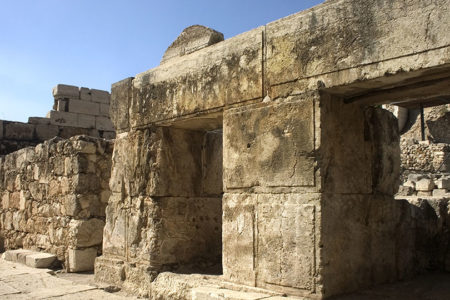O the Good Life!
When the United Nations voted to create the independent State of Israel in 1948, most of world Jewry rejoiced. Israel provided a safe haven for thousands of traumatized Jewish Holocaust survivors. Interestingly, however, only a small remnant of Jews from England, France, Canada, and the United States opted to make aliyah (to return to Israel). For them, the allure of living in the land promised to them by God was trumped by the reality of insecure borders and loss of steady income. Simply put, life in the Diaspora was just too good to leave.
Sometimes when life is “too good,” people fail to make the sacrifices necessary to follow the Lord. Perhaps such was the case in the sixth century B.C. when Jewish people hesitated to leave Babylon and return to their homeland.
Many were taken to Babylon as captives beginning in 605 B.C. In 586 B.C. Jerusalem’s fate was sealed when the Babylonians burned the city and first Temple and deported the bulk of the Jewish population. Through the prophet Jeremiah, God explained that Israel’s captivity would last for 70 years: “‘When seventy years are completed,…I will punish the king of Babylon and that nation, the land of the Chaldeans, for their iniquity,’ says the Lᴏʀᴅ; ‘and I will make it a perpetual desolation’” (Jer. 25:12). Toward the end of the captivity, a new generation had sprung up that found life outside Israel less frustrating than their fathers and grandfathers had. Yet living farther from the land also brought them farther from the Lord. Spiritual lethargy prevailed, and many either ignored or were unaware of God’s Word.
Two hundred years before the captivity, God gave the prophet Isaiah words that would encourage that future generation. God had promised to raise up a shepherd, His anointed, with the power and authority to issue a decree for the Jewish people to rebuild their Temple. They would have the opportunity to go home. In addition to providing the details of the future proclamation, the prophecy also named the man who would issue it: Cyrus (Isa. 44:28—45:1).
Cyrus was on the throne when Ezra was alive. Unlike many of his brethren, Ezra did not suffer from spiritual lethargy. Although a priest without a Temple, he devoted himself to copying the Law of Moses as a scribe (Ezra 7:6). In addition, he attempted to inspire the Israelites by promoting the public reading of God’s Word (Neh. 8:1). His desire was for spiritual revival, which he believed could only happen by understanding God’s Word.
Ezra records the fulfillment of Isaiah’s and Jeremiah’s prophecies concerning the Jewish people’s permission to return to their land:
Now in the first year of Cyrus king of Persia, that the word of the Lᴏʀᴅ by the mouth of Jeremiah might be fulfilled, the Lᴏʀᴅ stirred up the spirit of Cyrus king of Persia, so that he made a proclamation throughout all his kingdom, and also put it in writing, saying, Thus says Cyrus king of Persia: All the kingdoms of the earth the Lᴏʀᴅ God of heaven has given me. And He has commanded me to build Him a house at Jerusalem which is in Judah (Ezra 1:1–2).
Although Cyrus’s proclamation was a dramatic fulfillment of prophecy, the Jewish response was less than enthusiastic. Only 49,897 Israelites were willing to make the arduous return home (2:64–65).
Is life too comfortable for you? Jewish people are certainly not the only ones who sometimes hesitate to make sacrifices in order to follow the Lord. In fact, as Christians, we should be ready to go whenever and wherever He tells us, whether across the street or around the globe. Before Jesus ascended to the Father, He said, “Go into all the world” (Mk. 16:15). Perhaps it’s time to take inventory. Are you where you’re supposed to be? Or is the “good life” too difficult to leave behind?







